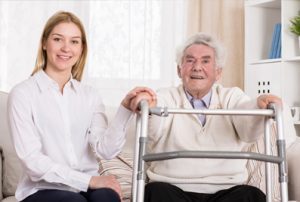You can’t always be there. But we can.
Some Important Tips to Reduce Your Risk of Falling in the Hospital and at Home

Nutrition requirements @ age 50+
September 1, 2015
Help Prevent Alzheimer’s With These Healthy Food Choices
April 25, 2016Some Important Tips to Reduce Your Risk of Falling in the Hospital and at Home
 All of us should be aware of any potential injuries that can happen especially if we have already reached the age where we can be already classified as a senior. More caution would then be needed.
All of us should be aware of any potential injuries that can happen especially if we have already reached the age where we can be already classified as a senior. More caution would then be needed.
The safety of seniors is always one of the most important things to consider in a home or a hospital environment. Like all of us, seniors are susceptible to any kind of injury but for them the recovery rate is much slower and they are frail in comparison to younger adults so the likelihood of disability or any serious impairment from any injury are much higher.
One of the leading causes of injury is falling. Here are some important risk factors to consider:
Health and Age
- Problems with balance, weakness, foot problems
- Dependency on cane or walker for mobility
- Being over the age of 65
- Poor vision
- Confusion
- Side effects from medication
Environment and Situation
- Operating or moving in dark places
- Unfamiliarity with the environment
- Devices that restrict movement such as an I.V. in the arm
- Urge to be independent even when ill or weak
- Worn out or loose rugs
- Obstacles on path such as raised door stills, small tables, I.V. pole and all clutter
- Spills on floors or anything that makes the floor slippery
- Wearing slippery shoes or socks while walking
- Refusing to ask for help
It is suggested that everyone including all family members and health care team involved work hand in hand to be able to reduce any fall risk. Here are some important things to keep in mind (in the form of a checklist).
- Don’t hesitate to ask for help when unable to get off bed while dizzy or have been given warnings of any risk of falling, or if needing to move from one place to the other (ex: going to the bathroom)
- Wear non-skid, low-heeled shoes or slippers
- All important items should be kept within reach ex: call buttons, light switches. Flashlights, Eyeglasses, telephone
- Slowly get out of bed (it is suggested that the feet should be dangled before getting up)
- Any instructions, activity, and prescriptions issued by the doctor should be reviewed and followed. Be aware of any medications that have side effects that can cause drowsiness and disorientatio
- Regularly exercise to improve flexibility. strength and balance
- Use walking aids if prescribed
- There should be night lights installed in bedrooms and bathrooms
- No cords or any clutter should be present on pathways
- Handrails should be installed near the stairs
- Grab bars should be included in shower, tub, and toilet areas if needed
- Stools and benches should be readily available in showers
- Elevated toilet seats should be also installed if needed
- Bath mats with suction cups and non-slip adhesive strips should be placed in the shower or bath tub
- Rugs or carpets should be kept flat
- Walkways should be maintained and repaired if cracked or uneven
Source: cedars-sinai.edu

